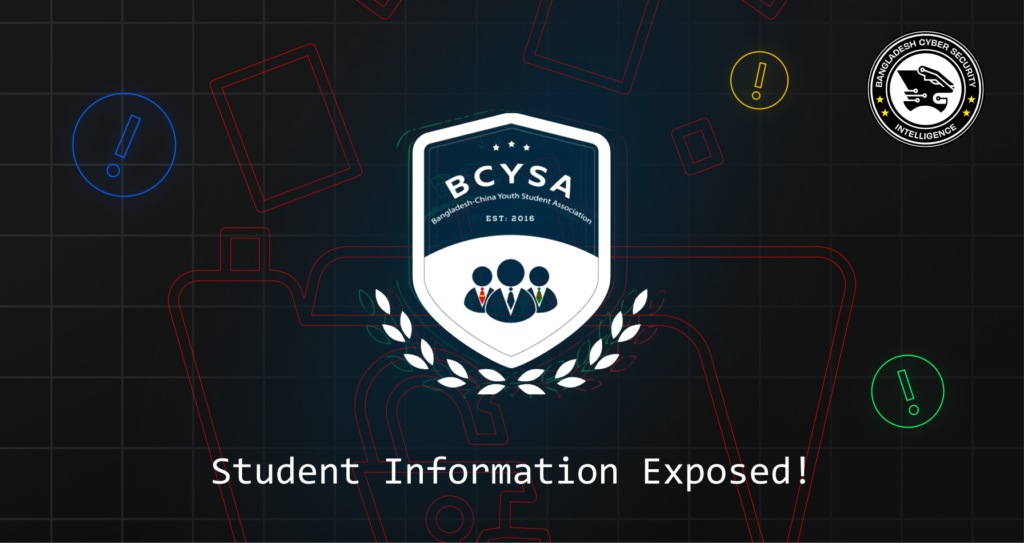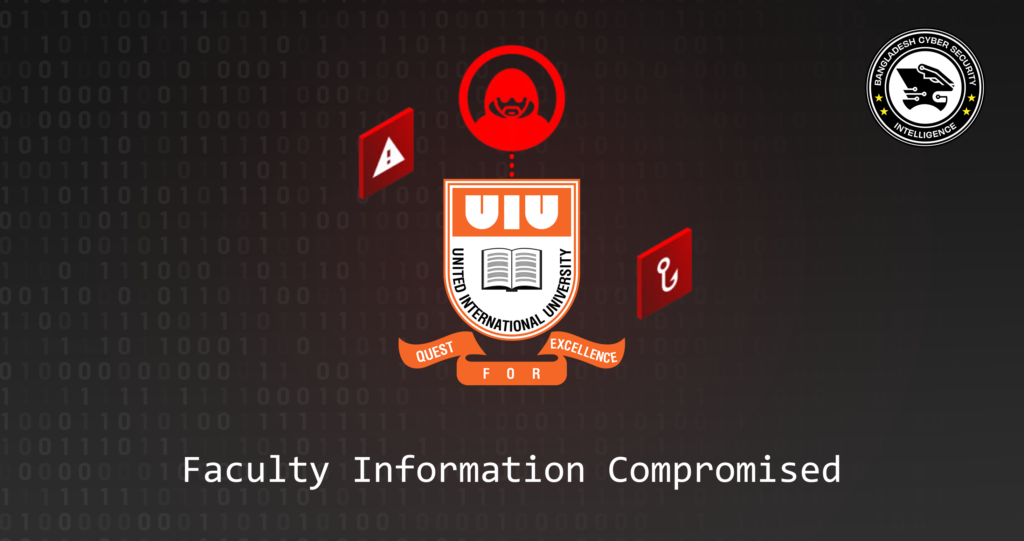
The recent breach of the Bangladesh-China Youth Student Association’s (BCYSA) student database has sparked concerns and raised questions about data security. This incident, which occurred on February 29, 2024, has significant implications not only for the affected students but also for organizations worldwide.
Incident Overview:
The breach involved unauthorized access to the BCYSA student database, which contained sensitive information about its members. This database likely included personal details such as names, contact information, academic records, and possibly even financial data. The breach was not only a violation of privacy but also a breach of trust between the association and its members.
Nature of the Breach:
The exact method used to breach the BCYSA database remains unclear, but it underscores the importance of robust cybersecurity measures. Whether through phishing, malware, or other means, cybercriminals exploit vulnerabilities in systems to gain unauthorized access to sensitive information. This breach serves as a reminder of the constant threat posed by cyber attacks and the need for organizations to remain vigilant in protecting their data.
Implications of the Breach:
The implications of this breach are far-reaching. For the affected students, there is the immediate concern of identity theft, fraud, and potential reputational damage. Moreover, the exposure of personal information can lead to targeted phishing attempts or other forms of cybercrime. Beyond the individuals involved, the breach also reflects poorly on the BCYSA and undermines confidence in its ability to safeguard sensitive data. Additionally, it highlights broader issues of cybersecurity and the need for stronger regulations and enforcement to prevent such incidents in the future.
Mitigation Strategies:
In response to the breach, several mitigation strategies should be implemented. Firstly, the BCYSA must take immediate steps to secure its systems and investigate the extent of the breach. This may involve conducting a thorough security audit, patching any vulnerabilities, and enhancing security protocols. Additionally, affected individuals should be notified promptly and provided with resources to mitigate the potential impact of the breach, such as credit monitoring services and guidance on cybersecurity best practices. Moving forward, the BCYSA should prioritize investments in cybersecurity training and infrastructure to prevent similar incidents from occurring.
Conclusion:
The breach of the Bangladesh-China Youth Student Association’s student database serves as a stark reminder of the importance of data security in the digital age. It underscores the need for organizations to prioritize cybersecurity and implement robust measures to protect sensitive information. While the immediate implications of the breach are concerning, it also presents an opportunity for reflection and improvement. By learning from this incident and taking proactive steps to enhance cybersecurity practices, organizations can better safeguard against future threats and protect the trust of their stakeholders.


